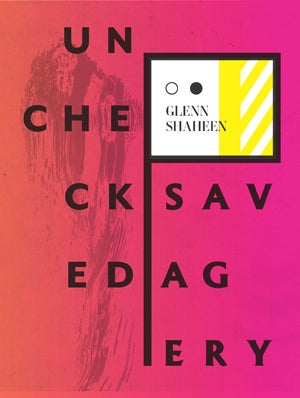by Bonnie ZoBell
 Welcome to Diana Arterian, the current Editor-in-Chief of Gold Line Press (a rotating position) and the creator and Managing Editor of Gold Line’s imprint, Ricochet, both of which publish poetry and fiction/prose chapbooks. Her own chapbook Death Centos is forthcoming from Ugly Duckling Presse, and her poetry has appeared or is forthcoming in H_NGM_N, trnsfr, Two Serious Ladies, and The Volta, among others. Diana was born and raised in Arizona. She currently resides in Los Angeles, where she is pursuing her PhD in Literature and Creative Writing at the University of Southern California. She holds an MFA in poetry from the California Institute of the Arts, where she was a Beutner Fellow.
Welcome to Diana Arterian, the current Editor-in-Chief of Gold Line Press (a rotating position) and the creator and Managing Editor of Gold Line’s imprint, Ricochet, both of which publish poetry and fiction/prose chapbooks. Her own chapbook Death Centos is forthcoming from Ugly Duckling Presse, and her poetry has appeared or is forthcoming in H_NGM_N, trnsfr, Two Serious Ladies, and The Volta, among others. Diana was born and raised in Arizona. She currently resides in Los Angeles, where she is pursuing her PhD in Literature and Creative Writing at the University of Southern California. She holds an MFA in poetry from the California Institute of the Arts, where she was a Beutner Fellow.
Bonnie ZoBell: Hello, Diana. I appreciate your talking today about your fiction chapbooks at Gold Line Press.
Diana Arterian: Of course! I’m super excited to contribute to the conversation.
BZ: Does Gold Line Press have a philosophy?
DA: The long and short of Gold Line’s mission/philosophy is to take advantage of a form that has many exciting iterations: the chapbook. The idea here is to make a home for a collection that isn’t full-length, be it prose or poetry, and produce a compelling physical object to compliment the quality of the text itself. We take pride in the fact that all our chapbooks are perfect bound, have ISBNs, and are in the Library of Congress. Also, everyone on the editorial team is a (sometimes not-so-) struggling writer, and we understand the value of promoting one’s work. Those who win the GLP contests enjoy our people sending out 30 chapbooks to venues for review, which can otherwise be pretty stressful, tedious, or time-consuming for a writer.
Gold Line’s imprint, Ricochet, also does this, but we send fewer out for review as we have a stricter budget than Gold Line. Though our missions are similar, Ricochet hopes to be a home for manuscripts that have a difficult time finding homes for whatever reason. The imprint’s team is smaller and so is the pool we select from (generally solicitations from the Gold Line competition slush or from writers we know).
BZ: What would you say your press is looking for in the way of fiction chapbook submissions?
DA: Both Gold Line and Ricochet provide an opportunity for those writers with a collection that have a long short story or novelette that no one will publish due to its length, a cluster of flash fiction that can’t get much longer, or just a series of interlinking short stories that would become weak if pushed past 60 pages or so. Though fiction chapbooks are not as prevalent as poetry chapbooks, it’s an ideal form in some ways for these collections that often otherwise remain homeless.
BZ: What mistakes do you see writers making who submit to Gold Line Press?
DA: (laughs) Strangely enough we all struggled with one manuscript that was submitted with a Didot font. Though this may be legible in its physical form, it is not kind to the eye on Submittable (a digital submission program). Really though (and this is for poets too), I often see submissions that are a kind of “the best I’ve written so far” collection that doesn’t engage with the chapbook as a form. That said, as a writer who submits work even when it’s not necessarily “ready,” I understand the psychic need for consistently putting your work out into the world and seeing what comes back.
Though fiction chapbooks are not as prevalent as poetry chapbooks, it’s an ideal form in some ways
for these collections that often otherwise remain homeless.
BZ: What’s your idea of a perfect submission?
DA: The chapbook is supposed to provide a limited space, sure, but one that is specifically set so that the work engages with a pretty exciting mode of production that (hopefully) provokes a kind of seepage between the pieces within it – be it flash fiction or short stories. As one who’s on the other side of the desk for submissions, it’s a hard thing to pin down the “perfect” submission. Honestly, when my heart beats quickly, that’s usually when I know I have something. The mere desire to keep reading isn’t necessarily reflective of good writing – I have often found myself continuing to read work in the hope that it will get better.
BZ: Name a few writers whose fiction chapbooks Gold Line Press has published and tell us a few words about their chapbooks.
DA: Our fiction section is growing slowly but surely. Last year we published Jay Shearer’s The Pulpit vs. The Hole (selected by Percival Everett), which is a novelette. In reductive terms, TPvTH tells the story of teenagers coming-of-age at a Mennonite summer camp and is a wonderful read. Ricochet is putting out two fiction chaps in the spring: Glenn Shaheen’s Unchecked Savagery and Matthew Kirkpatrick’s The Exiles. Glenn’s is a collection of flash fiction that engages with the notion of film and representation. Glenn is also a successful poet, and his capacity to say much in little space shows. The Exiles is a novelette, also a kind of coming-of-age story, but told in reverse – two families across the street from one another and the isolated children within each home. Dana Johnson just selected Alisa Slaughter’s Bad Habitats, which is a fabulous collection of interlinked short stories involved hyper-anthropomorphized animals. I was so thrilled that Dana picked it.
BZ: If you could put a fold-out in one of your chapbooks, who or what would it be of?
DA: If I were a better designer I could probably have a particularly smart answer for you. It is also hard for me to claim such a space in someone else’s chapbook if Gold Line or Ricochet were to publish such a thing! If I were allowed a fold-out in a chapbook of my own writing, I would probably pick a piece of artwork I’m nutty about, like something by Karen Arm, Matt Cusick, Balin Tzsako. Otherwise I would try to create some crazy bizarro family portrait of all my favorite poets (dead and alive) who have played a part in my own development as a writer.
The mere desire to keep reading isn’t necessarily reflective of good writing –
I have often found myself continuing to read work in the hope that it will get better.
BZ: Talk a little about the production of Gold Line Press’s chapbooks. What size are they? How are they made? Perfect bound, stapled, or? How much color do you use? What is the page range of most of them?
DA: We pride ourselves in the quality of our chapbooks. This is not to denigrate the value and importance of chaps that are handmade (in the least!), or photocopied, or assembled in a less obvious manner. Ours are perfect bound, 5.3”x7”, and usually between 20-60 pages. We do full-color covers, and Ricochet actually recently published a chap of erasure poetry by Bradley Harrison with full-color interior. Though costly, it really captures the magic of Brad’s work and the physicality of it. This is all due to the wonderful printer BookMobile – they are consistently organized, professional, affordable, and have many options for publishers of all sorts. I can’t recommend them more highly!
BZ: Do you accept manuscripts all year round, or only during certain times of the year?
DA: Gold Line has one annual competition with submissions from August to October, with the hope that the winners will be published by AWP in the spring. We also select a judge, often a member of USC’s faculty (until we run out) as Gold Line is associated with USC’s PhD in Literature and Creative Writing. Ricochet doesn’t have a competition or a judge. We often cull from Gold Line’s submissions and hold an open reading period in April for an “alternative” form – this year we are doing a call for lyric essays.
BZ: Is Gold Line Press interested in chapbooks from new writers who haven’t had books or chapbooks published before?
DA: We are interested in anything that thrills us and makes us excited to provide a platform for talent and devotion as seen in the work. We have no preference concerning the stage of one’s career, though I will say it is a particular joy to be the first to “discover” someone who is producing wonderful or challenging writing.
BZ: How many stories in the chapbooks submitted to you do you like to see already published?
DA: We actually request that people don’t include an acknowledgements page but, as a fellow writer, my hope is that the submitter is wildly successful in her attempts at publishing her stories!
BZ: Thanks so much for all of this information, Diana! And I’m very glad to hear about Gold Line Press’s imprint, Ricochet. We need more fiction chapbooks!


I always appreciate in-depth looks into different corners of the writing world–I found this one particularly helpful.
I am in the process of compiling a chapbook for an upcoming submission window, and have a few questions–maybe this is the right place for them?
1. Some of the stories I’m considering were previously published elsewhere. I assume I should always note this on those stories … but where and how?
2. Is it appropriate to trim down and modify previously published work for the purpose of working it into a chapbook concept? For example, I’d like to change the protagonist’s name in one story to match the character concept of the collection. And I need to revise due to length restrictions. Is this common?
I appreciate any guidance, since I’m not finding much out there on this kind of minutae.
–AM
Hi again, Martin.
Yes, when you get the copy of my book (thanks for ordering!), you’ll see at the beginning that I thanked the editors who previously published the stories, which are now in slightly different form. Then I list the names of the stories and what magazines they first appeared in. You can include a sheet like this, which you intend to publish in the book when you send the manuscript to publishers. They can see there where the stories have been published before.
Yes, it’s absolutely appropriate to to change previously published stories to make them fit better into what you’re doing with the book as a whole. Past editors will know you might do that. I would just say what I mentioned above–on the page where you list pieces that were previously published, say that were previously published in slightly different form.
Good luck!
Bonnie